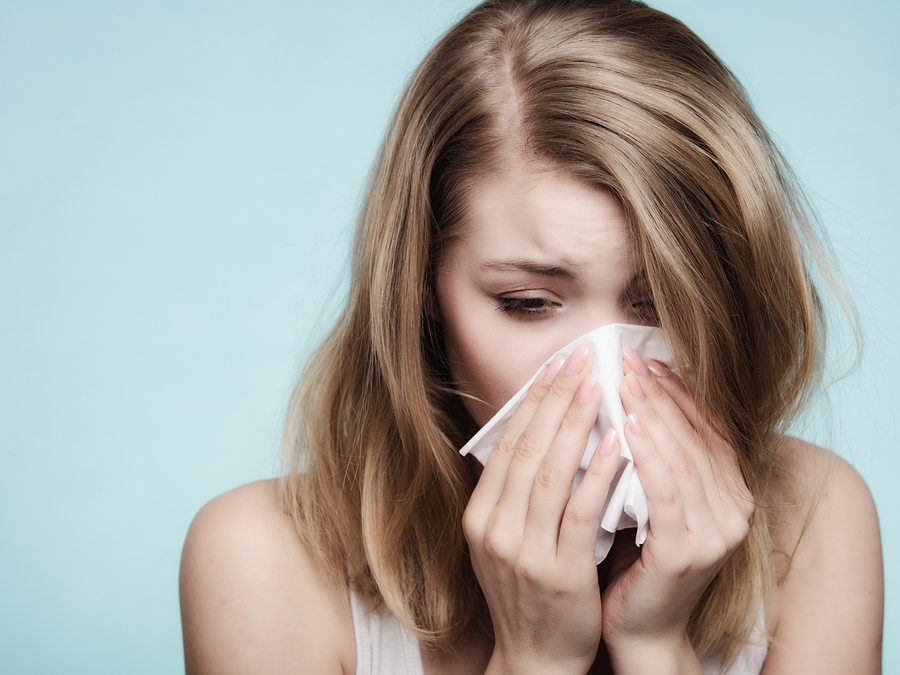Most people look forward to a nice rainy day to wash away the smog or give us a little peace of mind. Those who suffer from allergies, seasonal or chronic, may be wondering if allergies are better or worse in rainy conditions. Read on to find out how rain can affect allergy symptoms and conditions.
For allergy treatment in New York City, visit Dr. Shukla for personalized options.
Rain Can Be Good
For the most part, rainy days are actually great for people who suffer from allergies. The humidity that occurs when it rains helps to weigh pollen down and prevent it from spreading through the air. When this happens, you may find that your allergy symptoms lessen and you feel better than usual.
Rain Can Also Be Bad
On the other hand, in some rainy conditions, raindrops can fracture pollen into tiny little particles which are then released into the air in higher concentrations. For some, this may result in more severe allergic reactions and symptoms. This happens because the pollen particles are smaller so they spread more quickly. The tiny particles are more readily absorbed as we breathe the air and the pollen is able to enter small airways and noses of sufferers who may then have an allergic reaction.
Asthma sufferers may find that their symptoms are aggravated and more severe as these particles create inflammation in their airways, making breathing difficult, and causing shortness of breath. Commonly, this reaction is known as thunderclap asthma. For those who only worry about irritating their allergy symptoms, rainstorms may can result in potentially serious respiratory symptoms.
Minimizing Allergies
Specifically, during the allergy season, sufferers should avoid spending too much time outdoors when it rains or when the wind is acting up. In order to minimize your exposure to any allergens that land on you when you’re caught up in a rainy or windy storm, it is important to keep a few things in mind.
Keep your windows closed during these weather conditions to prevent potential irritants from entering your home or vehicles. Run a fan at home to circulate the air within and consider utilizing a HEPA filter to purify. Remember to remove any wet clothing before going indoors. It is ideal if you can bathe or shower each night to remove any potential pollen particles that may have landed on your skin and hair. To remove any excess allergens that may have made their way to your bed, it is a good idea to regularly wash your sheets, pillowcases, and blankets as well.
Keep in Mind
Any time you experience rainy or humid weather conditions, mold and dust mite levels are expected to rise. Because they thrive in damp conditions, you can assume they will pop up in both indoor and outdoor areas. To lower your risk of having an allergic reaction, do your best to keep mold or dust mite prone areas clean, disinfected, and dry.
A short rainstorm should not be too much to worry about as prolonged storms are more troublesome to allergy and asthma sufferers. There are many factors that may influence your allergies during any given season so it is important to take precautions and minimize your exposure when needed. If you are able, prepare yourself by having the proper medications on hand to help manage symptoms. Stock up on your supply of tissues, antihistamines, and nasal clearing sprays as needed. All of these measures will help to manage and reduce your exposure as much as possible.
If you are dealing with chronic allergy troubles, schedule a consultation with Dr. Shukla today.
Allergy Treatment in New York City
Giving peace of mind to patients in the New York City area for over 15 years, Dr. Mayank Shukla is an expert pulmonologist and sleep doctor. Employing a unique combined approach to allergy treatment in New York City, he has successfully treated thousands of patients suffering from asthma, allergies, and sleep disorders.

